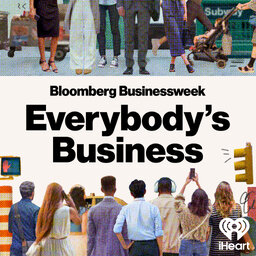Taylor Swift vs. The World
Taylor Swift embodies a rare cultural presence and moment – and she’s everywhere. She inhabits her presence (amid an unusual amount of glare) with an unusual amount of grace. But now, a lot of weird conspiracy theories from Fox and conservative commentators have attached themselves to her. Nevertheless, Taylor Swift has kept her wits about her when everyone else is losing theirs. Emma Gray co-writes a culture Substack called Rich Text, is the author of “A Girl’s Guide to Joining the Resistance,” and is a columnist with MSNBC.
In 1 playlist(s)
Crash Course
Hosted by Bloomberg Opinion senior executive editor Tim O'Brien, Crash Course will bring listeners d…Social links
Follow podcast
Recent clips

Introducing: Everybody's Business
01:27

Black Voters vs. The 2024 Election
43:43

Latinos vs. The 2024 Election
44:11
 Crash Course
Crash Course